|
During our few days at the refugee camps, we were able to meet with a diversity of people including: organizations working in the camps, children, adolescents, women, and men. We had the opportunity to meet with people who had arrived that day, a community who had been in the settlement less than two weeks, and a community who had been in the camps for more than a year. 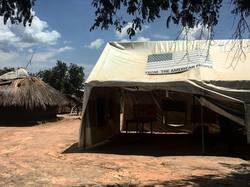 In our focus groups, we heard about the basic needs that people were in need of, but we also heard a large emphasis on the need for psychosocial support for the individual and community's grief and trauma. This was surprising to me because in many communities that I have worked in where counseling and mental health is a taboo subject and speaking about it takes a lot of care and sensitivity. The South Sudanese and Congolese spoke of their psychological trauma and support needs openly, and I was thrilled to hear their suggestions because many of the suggestions fit right into Playing to Live's structure, which included: community capacity building, trauma informed skills training, the use of cultural art and play, and building skills within the family. 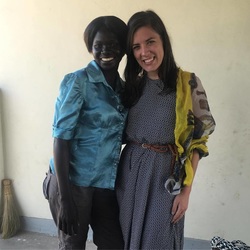 Sitting idol was indicated as one of the major social issues within the villages. The villages sit far away from each other and are very isolated. Economic opportunities and access to secondary schools are extremely limited, which leaves time for youth to engage in risky behavior, young girls are susceptible to early marriage, and there is ample time to think about trauma and loss. The youth spoke to us about their want for the opportunity to use art supplies, put on drama plays, and practice their cultural arts. They spoke about their wishes to use these mediums as a way to advocate to their community their child rights and tell their story. I filled a whole notebook of notes during our visit, and I will continue to upload blog posts as I leaf through my field notes and work with my team on next steps. (Image above: Our translator knew over 5 languages and spent a significant time with us during our focus groups. We spoke after the groups, and she emphasized the need for psychosocial support specifically one that is culturally appropriate.) ~Alexis
1 Comment
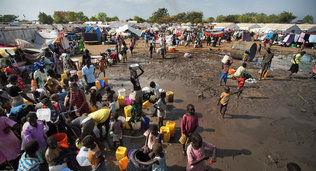 Oeindrila and I spent our first few days in Uganda meeting with a diversity of international and local organizations, who are working in the refugee camps. We learned about the structure of the refugee camps within Uganda, which is very unique and is contrast to what we are experiencing in the Western world. When the refugees are received within the camp, they are processed and given a plot of land within the "settlement," a year of food assistance, materials to build a home, and other essential needs. Once given refugee status, the refugee is free to move within Uganda and apply for work, receive education, and live where they choose. Since July there has been an influx of South Sudanese refugees due to an increase of fighting. According the the UNHCR, over 37,000 people have sought asylum since the beginning of the year. The organizations we spoke to highlighted the need for psychosocial support due, to the refugees experiencing high amounts of trauma including abuse, grief, witnessing death of family members, rape, and having their lives and integrity threatened. Within the camps, our contacts told us, there is a gap of psychosocial care. The organizations told us about the work they have done to provide psychosocial care, which is admirable and impressive, but with all the other needs that need to be filled there is still a large gap. This gap is where we hope to come in.
|
Welcome to Our Blog!
We will be providing you with stories of the communities we support. The children and their caregivers featured in this blog have provided consent to share their art, pictures and stories. Archives
April 2020
Categories |
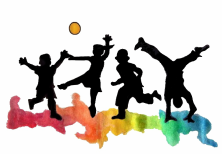
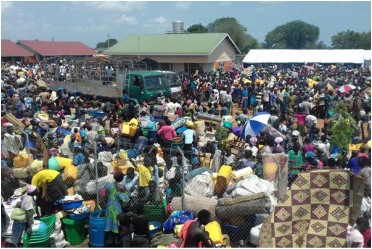
 RSS Feed
RSS Feed